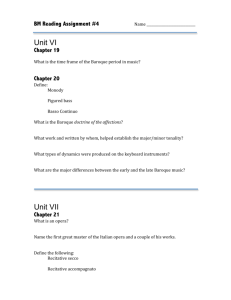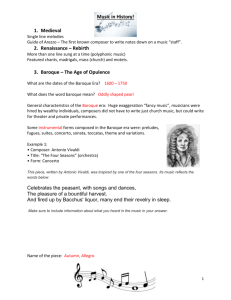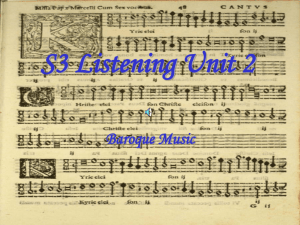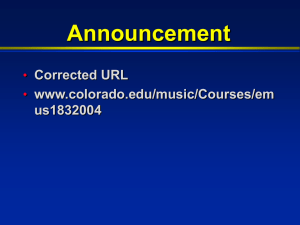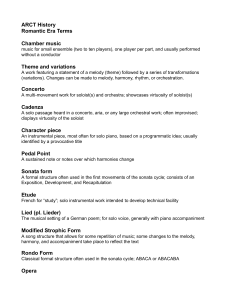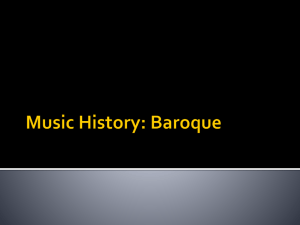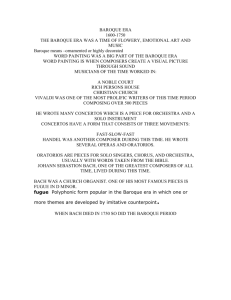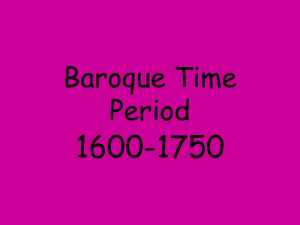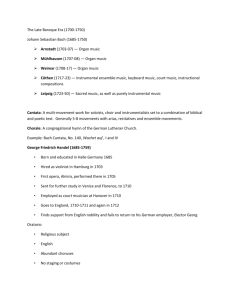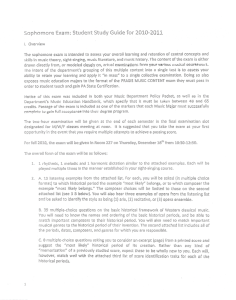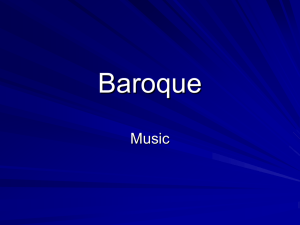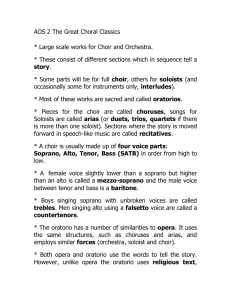Study Guide for Test 3 - Lionheart Christian Academy
advertisement
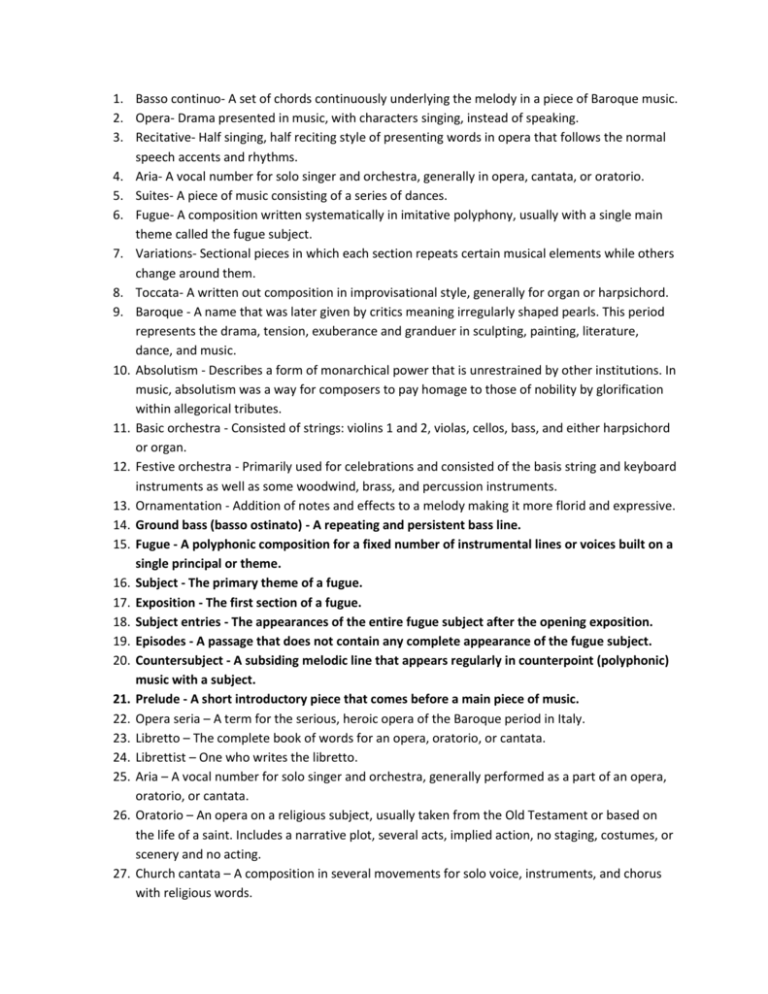
1. Basso continuo- A set of chords continuously underlying the melody in a piece of Baroque music. 2. Opera- Drama presented in music, with characters singing, instead of speaking. 3. Recitative- Half singing, half reciting style of presenting words in opera that follows the normal speech accents and rhythms. 4. Aria- A vocal number for solo singer and orchestra, generally in opera, cantata, or oratorio. 5. Suites- A piece of music consisting of a series of dances. 6. Fugue- A composition written systematically in imitative polyphony, usually with a single main theme called the fugue subject. 7. Variations- Sectional pieces in which each section repeats certain musical elements while others change around them. 8. Toccata- A written out composition in improvisational style, generally for organ or harpsichord. 9. Baroque - A name that was later given by critics meaning irregularly shaped pearls. This period represents the drama, tension, exuberance and granduer in sculpting, painting, literature, dance, and music. 10. Absolutism - Describes a form of monarchical power that is unrestrained by other institutions. In music, absolutism was a way for composers to pay homage to those of nobility by glorification within allegorical tributes. 11. Basic orchestra - Consisted of strings: violins 1 and 2, violas, cellos, bass, and either harpsichord or organ. 12. Festive orchestra - Primarily used for celebrations and consisted of the basis string and keyboard instruments as well as some woodwind, brass, and percussion instruments. 13. Ornamentation - Addition of notes and effects to a melody making it more florid and expressive. 14. Ground bass (basso ostinato) - A repeating and persistent bass line. 15. Fugue - A polyphonic composition for a fixed number of instrumental lines or voices built on a single principal or theme. 16. Subject - The primary theme of a fugue. 17. Exposition - The first section of a fugue. 18. Subject entries - The appearances of the entire fugue subject after the opening exposition. 19. Episodes - A passage that does not contain any complete appearance of the fugue subject. 20. Countersubject - A subsiding melodic line that appears regularly in counterpoint (polyphonic) music with a subject. 21. Prelude - A short introductory piece that comes before a main piece of music. 22. Opera seria – A term for the serious, heroic opera of the Baroque period in Italy. 23. Libretto – The complete book of words for an opera, oratorio, or cantata. 24. Librettist – One who writes the libretto. 25. Aria – A vocal number for solo singer and orchestra, generally performed as a part of an opera, oratorio, or cantata. 26. Oratorio – An opera on a religious subject, usually taken from the Old Testament or based on the life of a saint. Includes a narrative plot, several acts, implied action, no staging, costumes, or scenery and no acting. 27. Church cantata – A composition in several movements for solo voice, instruments, and chorus with religious words. 28. 29. 30. 31. 32. 33. 34. 35. Chorale – Hymn which uses four part harmonization primarily in the Lutheran church. Bach-Dates Handel’s dates Baroque Period Dates Facts about Bach and Handel Facts about the Baroque Period Concerto - A large composition for orchestra and solo instrument. Concerto grosso - The main early Baroque type of concerto for a group of solo instruments and a small orchestra. 36. Movement - A self contained section of a larger piece such as a symphony or concerto grosso. 37. Vivaldi’s dates 38. Facts about Vivaldi .
